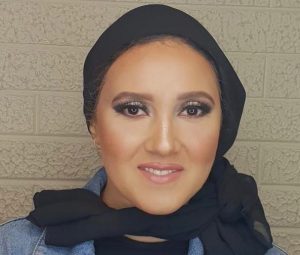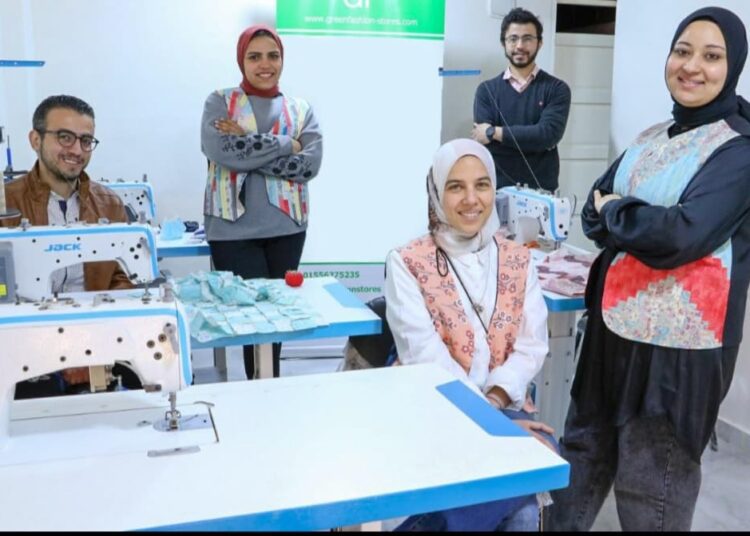
Hadeer Shalaby, an engineer and a passionate for a green economy, with co-founders and fashion designers Amira Sonbol and Amgad Moustafa launched the Green Fashion startup in 2019 to convert textile waste and unwanted clothes into environment-friendly products.
EG: Why did you start and what’s the passion behind?
HS: With my two co-founders I launched the ‘Green Fashion’ startup in early 2019. At that time we noticed that unwanted clothes sent to charities might end up on a landfill. We also noticed the huge amount of waste from textile factories. So the idea was to collect all the remains and produce environmental-friendly textiles and make a greater social impact for women involved in this project and for the environment.
EG: What is your background?
HS: I graduated from Menoufiya University in electronics and I have worked many years in charitable organisations.
EG: What are the issues you are solving and what is your value proposition?
HS: Green Fashion serves two goals: environment conservation and women’s empowerment. We reduce the problem of waste collected from individuals and factories. We convert the waste into new environment-friendly fashions.
We involve women in rural areas in the manufacturing process. Most of the women are single mothers, refugees and sole breadwinners. Empowerment comes through providing decent, sustainable work for good income.
The women who work with us were employed by factories where the environment was inconvenient. In many cases, the place of work was in an industrial city and far from their homes.
EG: Tell us more about the process, users and business model.
HS: We collect discarded clothes, wash them and make them ready for recycling. The women are trained in converting offcuts into biodegradable textiles.We also produce natural fibres and dyes to make recycled and sustainable products. We test the final recycled textile products and showcase in galleries and on social media channels.
EG: What are your main challenges?
HS: It was a tough job to convince the women that waste could make a decent final product, yet our customers are excited. Also converting recycled fabric into a fashion creation is a huge challenge. Also we are looking for more funding to expand production.
EG: What are your achievements and coming plan?
HS: We have recycled 18 tonnes of textile factory wastes and 51,000 discarded garments and made them into bags, jackets, and trousers. We currently own two production units with 80 women employees.
Since the start of the project, we have trained more than 250 women. We won second prize from the MIT (Massachusetts Institute of Technology) social impact competition. We have made partnerships with more than ten international and government institutions such the World Youth Forum and the German non-profit institution (GIZ) and UN Women.
EG: How do you find the entrepreneurial ecosystem in Egypt?
HS: Actually we find support from local incubators as well as international accelerators to progress and obtain funding.






Discussion about this post